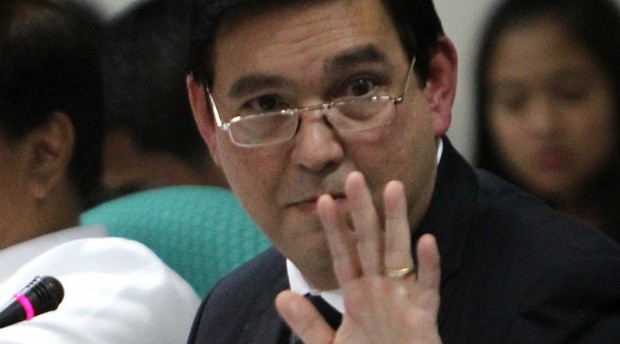All Filipinos will pay for BBL–Recto
The proposed Bangsamoro region would get a lot of subsidy and powers, including that of taxation, but in return would not contribute anything to the national government because it would retain its income, according to Sen. Ralph Recto.
During the hearing on the draft Bangsamoro Basic Law (BBL) on Monday, Recto said, “If you create a regional government, it’s an additional cost, not to the Bangsamoro people, but to people outside of Bangsamoro, because they are the ones paying for it.”
He also said this new regional government would actually add another layer to the bureaucracy, and its functions remained unclear.
But since taxpayers nationwide would be shouldering the cost of the new region, the draft BBL should be subject to a national plebiscite, not just one conducted in core territories, he said.
But Sen. Francis Escudero said these additional costs arising from the creation of the proposed region, essentially an expanded Autonomous Region in Muslim Mindanao, may be the “price for peace.”
Article continues after this advertisementEscudero asked the government’s peace negotiators whether this was the price that the government had to shoulder to bring peace with the MILF.
Article continues after this advertisement“Not that we won’t spend for it. Not that it’s not worth it. We just want to know what we’re paying for. Because clearly, this is not the price tag for a more efficient government, this is the price tag perhaps for something we have to do to achieve peace in Mindanao,” he said.
Undersecretary Jose Lorena of the Office of the Presidential Adviser on the Peace Process said it was both the price of peace and the answer to the quest of the Bangsamoro for self-determination.
Government peace negotiator Senen Bacani said the hope was for just, equitable and lasting peace in Mindanao as a result of investments, economic activity and utilization of natural resources.
“When you look at the economic impact of that, when you have a lot of economic activity, the tax base will definitely increase, the revenues from government will start coming in,” he said.
Internal Revenue Commissioner Kim Henares said the draft BBL did not reflect what had been initially agreed upon with regard to the taxing powers of the proposed Bangsamoro region.
Henares told the Senate that in the framework agreement, the deal was that the Bangsamoro government would be able to collect four taxes provided all taxing elements were in the region.
These are the capital gains tax, estate tax, donor’s tax and documentary stamp tax. The Bangsamoro could not touch all other taxes collected by the national government, but could add to this.–Leila B. Salaverria
